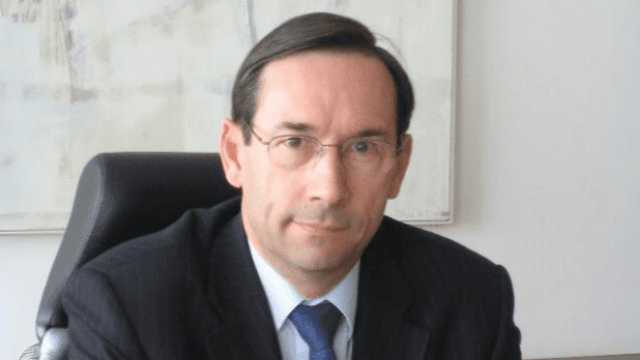At the age of 75, Jean Sarrazin (Class of 1968 - Physical Sciences, Chemistry option) has experienced various phases in his professional life. From being a teacher-researcher to an advisor to the Prime Minister, including roles as an institution director, academy rector, and diplomatic positions, all have in common his commitment to higher education and research. Retired but still active, he has recently joined the Academy of Sciences and Letters of Montpellier, a way to extend this unwavering commitment.
From the Transmission and Elaboration of Knowledge...
"My entire life has been motivated by science, teaching, and research, as well as the idea of creating the best conditions for the practice of professions in this sector," summarizes Jean Sarrazin. After graduating from ENSET (later ENS Cachan and then ENS Paris-Saclay), he devoted himself exclusively to his academic career. "We were primarily trained to teach. At that time, we entered higher education as assistants before obtaining a doctorate." For nearly thirty years, he was a teacher-researcher, starting at the University of Rennes 1, where he trained future agrégés. Later, he moved to the University and the National Higher School of Chemistry in Montpellier, where he would eventually become the director and remain associated until his retirement as a university professor.
…to University Politics
In the early 2000s, the academic's journey took a new turn, more institutional but still in the service of education, higher education, and research. He successively served as a science and technology advisor at the French Embassy in Canada (Ottawa), rector of the Academy of Grenoble, and extraordinary advisor to the Court of Auditors. During this period, he also served twice as an advisor to the Prime Minister, first in 2005 under Jean-Pierre Raffarin and later in the cabinet of François Fillon from 2010 to 2012. This role introduced Jean Sarrazin to a new experience. "When you are in charge of an institution, you touch everything: from pedagogy to real estate management, dealing with conflicts. When you are an advisor within the government executive, you draw on your professional experience to advise... And then the minister decides."
In Canada, from 2001 to 2005, Jean Sarrazin carried out missions to promote exchanges and monitor Canada's scientific, technological, and research policies. Back in France, he advocated for the creation of the National Research Agency and contributed to the elaboration of the 2006 Research Programming Law, allowing French universities to create their foundations. This law also proposed institutional frameworks facilitating the rapprochement of institutions. "In its subsequent application, I noticed the limitations of the system," he notes. "I think we should leave the initiative to academics. For me, only the 'bottom-up' approach works."
ENS Paris-Saclay: A tool for developing Intelligences
All these experiences have shaped Jean Sarrazin's convictions. "I have a demanding vision of the level of quality that higher education and research in France must achieve. I deeply believe that we must not only improve knowledge but also transmit it," he details. "And for that, we need good tools: ENS Paris-Saclay is one of them." From this perspective, the former rector—who was a student at 'the Faculty of Sciences in Orsay' and was part of the executive when the construction of ENS Paris-Saclay was scheduled—applauds its establishment "at the heart of the scientific potential of the Saclay campus, near the universities and schools with which it already had collaborations."
Remaining true to oneself
Jean Sarrazin retains excellent memories of his years at ENS: the mixing of students from different disciplines, union battles to obtain an additional dormitory building—another form of commitment as well. "Regardless of the training sectors, the role of ENS is to develop intelligences, to train minds in rigorous reasoning," he affirms.
Is there a recipe for such a diverse and brilliant career? "Be curious," says Jean Sarrazin, "maintain your critical thinking in your professional environments. Work. Even if you change positions every 5 to 10 years, you must know how to remain true to yourself," he concludes.

Comments0
Please log in to see or add a comment
Suggested Articles


